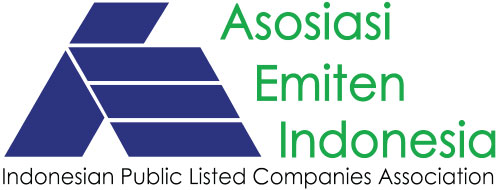
How Most Companies Start? Steps for Sustainability Reporting and Assurance
Amidst the growing awareness of environmental, social, and governance (ESG) issues, companies worldwide are increasingly required to report their sustainability performance. Sustainability reports not only serve as a communication tool with stakeholders but also as a means to demonstrate a company's commitment to responsible business practices. However, to ensure that these reports are trustworthy and meet the expected standards, companies need to follow certain steps in the reporting and assurance process. This article will discuss the steps typically taken by companies when starting sustainability reporting and assurance.
Reporting Steps
- Conducting Materiality Assessment and Determination
The first step companies must take is to conduct an assessment to identify the most relevant and material issues for their operations. This process involves an in-depth analysis of the social, environmental, and economic impacts of the company's activities. Materiality determination helps companies focus on the aspects that are most important to stakeholders, including investors, customers, employees, and the broader community.
In conducting the materiality assessment, companies can use various methods, such as surveys, interviews with stakeholders, and historical data analysis. The results of this assessment will serve as the foundation for companies to determine the topics to be reported in their sustainability reports.
- Selecting and Following Applicable Reporting Standards and Regulations
After determining material topics, companies need to select appropriate reporting standards. Some commonly used standards include:
Global Reporting Initiative (GRI): This standard provides guidance for companies to report their economic, social, and environmental impacts.
Sustainability Accounting Standards Board (SASB) Industry Standards: SASB provides reporting standards specific to various industries, helping companies report information relevant to investors.
Financial Services Authority Regulation (POJK) No.51/2017: In Indonesia, this regulation governs the obligation of public companies to prepare sustainability reports.
Adhering to these standards ensures that the reports produced meet the criteria expected by stakeholders. Additionally, following applicable regulations helps companies avoid legal and reputational risks.
Assurance Steps
- Conducting Assurance Only for the Most Material Performance Topics
At the initial stage, companies are advised to conduct assurance only on the performance of the most material topics. This helps optimize resources and focus on the most impactful areas. Assurance can be performed by an independent third party, which will evaluate the accuracy and reliability of the information presented in the sustainability report.
By conducting assurance on the most material topics, companies can provide assurance to stakeholders that the information presented is valid and trustworthy. This can also enhance the company's reputation in the eyes of investors and the public.
- Conducting Pre-Assurance Engagement to Identify Gaps
Before the assurance process begins, companies should conduct pre-assurance engagement. This involves discussions with relevant parties, such as management, employees, and external stakeholders, to identify gaps in existing reporting and sustainability practices. This process helps companies understand areas that need improvement before the assurance report is prepared.
Pre-assurance engagement also provides an opportunity for companies to gather valuable feedback from stakeholders, which can be used to enhance the quality of the sustainability report. By understanding and addressing existing gaps, companies can improve transparency and accountability in their reports.
Conclusion
Starting the process of sustainability reporting and assurance requires a systematic and planned approach. By conducting materiality assessments, selecting appropriate reporting standards, and effectively implementing assurance, companies can enhance the credibility of their sustainability reports. These steps not only help companies meet stakeholder expectations but also support better long-term sustainability efforts.
In an increasingly connected and transparent world, companies that can report their sustainability performance honestly and accurately will have a competitive advantage. They will not only gain trust from investors and customers but also contribute to broader sustainable development. Therefore, it is essential for companies to embark on this journey with the right steps and a strong commitment to sustainability.




 Back to Home
Back to Home







